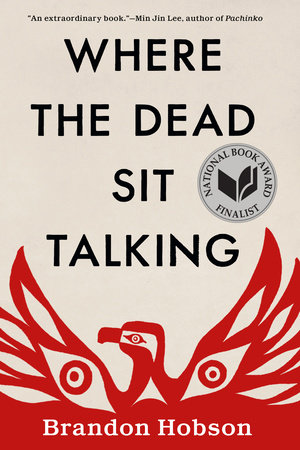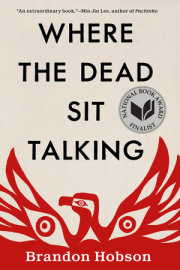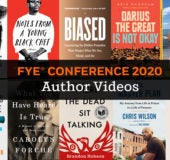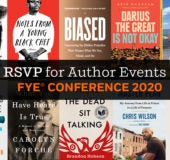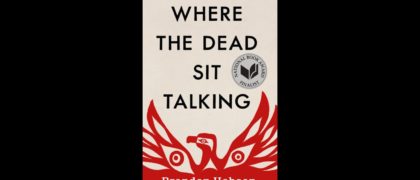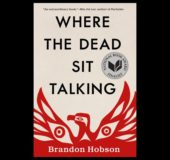I have been unhappy for many years now.
I have seen in the faces of young people walking down the street a resemblance to people who died during my childhood.
The period in my life of which I am about to tell involves a late night in the winter of 1989, when I was fifteen years old and a certain girl died in front of me. Her name was Rosemary Blackwell. It happened when she and I were living with a family in foster care, and though the details are complicated, I still think about her often. I’m alive and she’s dead. I should tell you this is not a confession, nor is it a way to untangle the roots and find meaning. Rosemary is dead. People live and die. People kill themselves or they get killed. The rest of us live on, burdened by what is inescapable.
We left Cherokee County when I was young, and like our ancestors, my mother and I traveled out of the land with our clothes and food in sacks. We traveled through the fierce shreds of a winter storm, following a highway north into the night. We drove slowly, ice spattering the windshield. My mother talked quietly to herself, both hands on the wheel.
Maybe it was in our Cherokee blood. My great-grandfather had once traveled alone to the desert plains to meet spirits, fire and water, the two gods of hunting. He was lonely when his wife died and sought isolation, desiring a communion with nature. For food he hunted buffalo and deer, built a scaffold of poles and used it to dry fruit in the sun. He slaughtered hogs. In his solitude he was strong and worked hard, seeking the peace of his ancestors. He built fires in the night and spread ashes on his chest. He slept in the branches of bitter oaks.
My mother told me these stories about my great-grandfather while driving us to Tulsa in her El Camino. Like him, I too believed in the spirit world. Like him, I tried to see the spirits in everything around me: the trees, the open plains, the sky. I searched for them in clouds and rain. I looked into the faces of strangers and questioned whether they were messengers for me. I waited to hear their voices, as my great-grandfather had heard in his dreams. Voices that told secrets, foretold the future. Voices that brought messages. My great-grandfather claimed to have met a beautiful spirit woman. He was exhausted from traveling and welcomed the sight of her. She wore long braided hair that hung down to her breasts. She appeared to him in the desert and brought him quill baskets full of food. Her eyes were fire. She held
my great-grandfather’s gaze, kissed his hands, and fell into a long, deep sleep with him.
My mother and I were alone, too. My father had left us, packed up his jeep and headed west to find God. I never knew him. My mother said he joined a group of missionaries and went down to Mexico. He’d had a couple of other kids before he married my mother, but I didn’t know them and it didn’t matter. We never heard from him again.
I was their only child. They named me Sequoyah, meaning sparrow, after the great teacher who developed the Cherokee language. My mother said she should’ve named me Yellow Sky, because I was always there to bring her light, like the dawn. Back then I was too young to understand her drunkenness. When she left me alone and went out at night, I fell asleep in her bed, waking later to the noise of her coming into the room.
“Go to sleep,” she told me, pulling off her boots. She collapsed onto the bed and fell asleep in her clothes. In the mornings I was there to bring her a wet washcloth and a glass of water. I was there to bring her food or medicine for her head and stomach. I never understood her sickness in the mornings back then.
“Those people you’re with are poisoning your drink,” I told her.
“It’s normal,” she said. “It’s how it is for everyone.”
I didn’t believe her, and for a while I was afraid she was dying. What could I do? She always smelled of cigarettes and sour liquor. The nights she vomited, I was there to hold the bucket beside her bed and sing, trying to heal her. I stroked her long hair and the beads she wore around her neck. While she slept I crawled into bed beside her and hugged her until I felt numb. I didn’t want her to die.
I was burned by hot grease once when I was eleven. My mother was drunk, but it was an accident. She was cooking bacon late at night and screaming at someone on the phone. I woke up and wandered into the kitchen with my shirt off, and she turned around waving the spatula. Hot grease stung my cheek and neck, burning me and knocking me down. I cried out and fell to the floor. My mother started crying and helped me into a cold shower. I remember the cold water against my skin and my mother crying and saying we should go to the emergency room, but we never did. The scars are small but noticeable enough. For a while my friends at school called me The Burned Boy.
I saw a couple of her boyfriends treat her badly. One guy kept telling her to keep her “fucking mouth shut.” Another yanked her by the arm during an argument. I learned to look away, ignore them, do whatever I could to pretend they weren’t abusive. These horrible men were the reason we left Cherokee County to start a new life. We rented a house just outside of Tulsa and my mother found a waitressing job but got fired for showing up drunk. The bad spirits followed us like smoke, creeping into our house and into my dreams at night. My dreamcatcher hadn’t been unpacked, stored away in a box somewhere in the garage. But when I looked for it I couldn’t find it. The spirits wouldn’t go away. Sometimes they drifted into my bedroom and filled my head with haunting dreams. Sometimes I woke to a crashing sound, like a fist through glass.
My mother wouldn’t stop drinking or staying out at night. She got waitressing jobs and then lost them. The other waitresses didn’t like her. Little by little, as time passed, she grew worse until she finally landed herself in the women’s prison for possession of drug paraphernalia and driving while intoxicated. She got three years since she already had a record. After that, the state took custody of me and put me in a shelter until they could find a foster home.
By fourteen, I was already smoking cigarettes and walking around alone at night. I visited my mother in prison with my social worker and kept waiting for her to straighten up like she said she would. She promised we would go back to living together again. Something inside me ached, like being held underwater and straining for breath.
At the shelter I met some friends, like Coco, who told me he pickpocketed people at the state fair. He stole toilet paper every day from the bathroom of El Vaquero until the place failed too many health inspections and closed down. For a while, before he was picked up and sent to the shelter, he slept wherever he could—in the homes of strange men, under a pavilion in a park, on the wood floors of abandoned houses. Still, at the shelter I felt confined and lonely. I saw a house fire in my dreams. The place was burning, dark smoke coiling upward into the pallid sky. In my dreams I longed to swim in that smoke, to fly around like a hawk circling in the sky. Outside, I beat on an iron fence with a spoon to drive away bad spirits. Sparks flew up and down the fence.
Nights I snuck out of the shelter and walked to the drive-in theatre. From Waterman Road to Rockland, past Pop’s Grill and the El Cortez Motor Lodge where the welders and oil field workers stayed whenever they came into town for work during the oil boom. I walked to the Comet Drive-In and climbed the wooden fence that led to the gravel lot where all the cars were parked. The Comet held a special place for me. My mother used to take me to a drive-in theatre back in Cherokee County when I was little.
I liked going to the Comet when it was cool outside. I zipped up my jacket and sat on the rickety wooden bench next to kids waving green and yellow glow sticks around in the dark while their parents waited in line at the concession stand. The people around me were meaningless. They were transient spirits, shadows. I sat on the bench under a low, dark sky and got lost in the movie.
When I was little, my mother sat with me on the ground in front of the giant screen. I remember watching a western, Indians riding on horses. I remember cowboys shooting each other in dusty saloons, men playing poker and fighting. The place showed a cartoon before the movie. Once they showed the Bugs Bunny cartoon when he was shooting Indians while singing “Ten Little Indians,” and even used the term “Injun.” I’d seen the cartoon before and always hated it. It’s one of the memories I still carry with me from those nights at the drive-in. Thinking back on it still bothers me. I wish I would’ve had a gun and shot the whole screen down.
I left the shelter so many times without permission they considered me a flight risk. The staff got so tired of calling the police to find me and bring me back that they told my social worker, Liz, they would stop letting me back in. But they couldn’t lock me up. I just wanted to get out and walk around.
I walked around the block. I walked to the gas station and watched people go in and out. I walked across the street to the park and sat on a bench and watched younger kids play. I clapped for them when they jumped from the swings or when they climbed the monkey bars. I spit in the dirt and ground my thumb in it. Nobody paid attention.
Nights I didn’t go to the drive-in theatre, I walked down to the 7-Eleven off the highway and looked at magazines, or I’d walk over to the bowling alley and talk to Leo, who was an old Vietnam vet who walked with a limp and told me stories about getting drunk and playing the mandolin in a country and western band when he lived down in Louisiana. He bought me Cherry Cokes and taught me to play chess in the snack bar one Saturday afternoon.
Liz told me if I didn’t stop sneaking out she would have to make a referral as a case in need of supervision to the juvenile bureau, where they would give me a set of rules I would have to follow, and if I broke them I would have to submit to sanctions that involved spending a weekend locked up in juvenile detention. So I started trying to make things work at the shelter.
Most nights I lay in bed, listening to music on my headphones. I tried to write in a journal, but everything I wrote sounded dumb. The staff let us play the Atari after supper and watch movies when we finished our homework. At bedtime I could never fall asleep. I remember lying in the dark, staring at the dingy white curtain covering the window that overlooked the parking lot. I had a dream once that I looked out the window and saw my father standing in that parking lot. In the dream, for whatever reason, he had a beard and long brown hair. I kept knocking on the window to get his attention, but he was looking up at something in the sky. A moment later a flock of birds settled on his shoulders and head. I woke up confused.
The nights when I left the shelter no one bothered me, so I wasn’t really afraid. I wore eyeliner sometimes. I’d stolen the eyeliner from a girl who was no longer at the shelter; I didn’t wear it for any reason other than I liked the way it looked on me. Coco told me it went well with my dark hair.
Sometimes men tried to pick me up, but I didn’t care. I kept walking. I looked so poor that I’m sure they felt sorry for me.
There was one night I met a prostitute. I’d walked past the bowling alley, over to a liquor store on McKinley Street. The guy working there had a cat with him. The cat was silent, slinking around my legs. I picked up the cat and let it curl against my chest. The guy working there asked to see my ID and I told him I’d lost it.
“Get out of here before I call the police,” he said.
The streets were quiet. I wasn’t feeling well and thought maybe I should just walk back to the shelter. When I crossed McKinley, though, a woman called me over and asked me on a date. She gave me a cigarette and called me
boy and asked me how old I was.
“Seventeen,” I lied.
“Boy is seventeen,” she said. She laughed.
I told her I was sick.
“Me too,” she said.
She took me upstairs to a small apartment and sat next to me. I smoked one of her cigarettes and drank part of a beer, but I was feeling sick.
“It’s okay, baby,” she said. “You want to do something else?”
“I’m freezing,” I told her.
“You just nervous,” she said.
I went to the bathroom and gagged myself, trying to throw up, but I couldn’t throw up. My eyes were watering when I came out. My brow was sweating and I was still cold.
When I came back to the sofa she was mashing her cigarette out in the ashtray. I sat next to her and closed my eyes. I tried to warm up.
Her stomach felt warm on my mouth. This woman, she was nice. She had raised her shirt and put her hand on the back of my head. She pulled my mouth to her navel.
“I have to go,” I said.
“What,” she said. “What, what, what?”
After I left, I walked all the way back to the shelter and went straight to bed.
Copyright © 2018 by Brandon Hobson. All rights reserved. No part of this excerpt may be reproduced or reprinted without permission in writing from the publisher.

